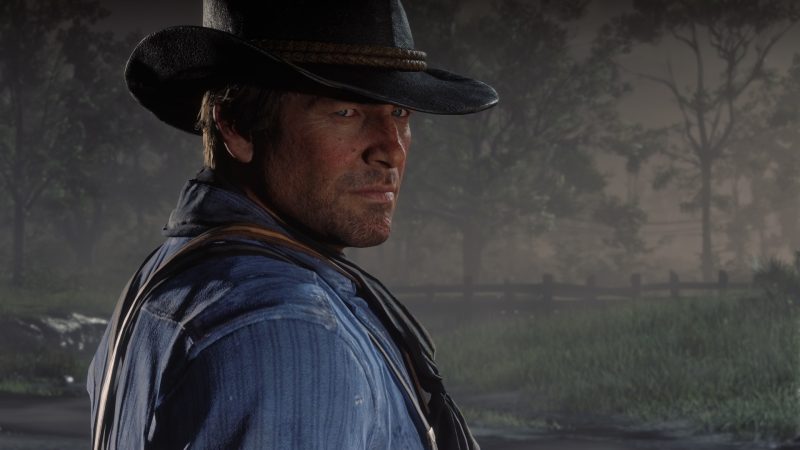Tucked away in an out-of-bounds area of Dead Rising Deluxe Remaster lies the logo for Rockstar Games’ 2004 western Red Dead Revolver.
Reddit user u/Penguinazu stumbled upon the logo in an inaccessible area. The Red Dead Revolver emblem appears on the building’s facade, visible only from specific angles. Intriguingly, the logo is partially obscured by a “Wild Call One Shot Decides” texture. A later update from the same user showed that the same “Easter Egg” existed in the original PlayStation 3 version of the game.
This unexpected crossover between Capcom’s zombie-slaying adventure and Rockstar’s western epic has left many gamers scratching their heads, but those familiar with the history of these titles know that the connection isn’t far-fetched.
It’s crazy to think that a game that Capcom basically threw away led to one of Rockstar’s most iconic franchises.
The story behind this Easter egg dates back to the early 2000s. Originally, the Red Dead Revolver was being developed by Angel Studios with Capcom publishing. The project, which began in 2000, was Capcom’s attempt to break into the western genre, inspired by classic spaghetti westerns and the company’s own arcade shoot ’em up, ‘Gun.Smoke’.
However, the development of Red Dead Revolver was far from smooth sailing. Cultural differences between the American development team and the Japanese publishers were too much of a challenge. Despite its announcement in March 2002, the game remained in a largely unplayable state, missing key industry events and failing to meet development milestones.
The turning point came in November 2002 when Take-Two Interactive, Rockstar Games’ parent company, acquired Angel Studios. This acquisition led to a review of all ongoing projects at the newly renamed Rockstar San Diego. It was during this review that Dan Houser, creative director at Rockstar Games, saw potential in the troubled western title.
Although the game was still unplayable, Houser was impressed by its visual style and concept. This interest proved crucial when Capcom, following the departure of key figure Yoshiki Okamoto, decided to cancel the project in August 2003. Sensing an opportunity, Rockstar Games swooped in and acquired the rights to Red Dead Revolver in December of the same year.
Under Rockstar’s guidance, the game was completed and released in 2004. While Red Dead Revolver itself received mixed reviews and modest sales, it laid the groundwork for its critically acclaimed successors, Red Dead Redemption, which got a PlayStation 5 remaster last year with a PC port coming out soon, and Red Dead Redemption 2, one of the best-selling video games of all time.
Rockstar Games isn’t working on a new Red Dead project anytime soon.
The presence of the Red Dead Revolver logo in the Dead Rising remaster is a remnant of the game’s complex development history. It’s possible that during the early development of Dead Rising, which began shortly after Capcom’s sale of Red Dead Revolver, the assets from the western project were repurposed or accidentally included in the zombie game’s files, supported by the fact that the logo is found in an out-of-bounds area and never intended to be seen by players.
It will be interesting to see how Rockstar and Capcom will respond to this discovery. Given that Rockstar now fully owns the Red Dead IP, it might ask Capcom to remove the unintended crossover in a future patch. However, many are hoping that Rockstar will take a different stance and leave this piece of gaming history as is—a quirky reminder of the franchise’s origins.
The post Dead Rising Remaster Hides Surprising Red Dead Revolver Connection appeared first on RDR2.org.


Be First to Comment